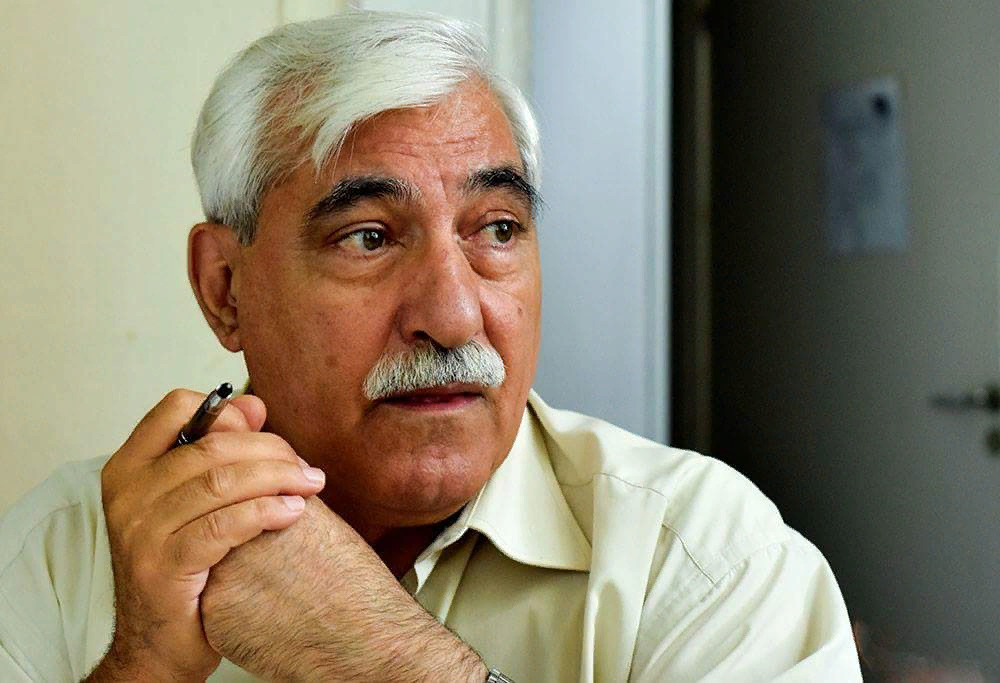“Despite all the hardships, especially the economic ones, Cuba offers its solidarity to other peoples…“
In the city of Rome lives Latif Al Saadi, a person of particular interest. A native of Baghdad, a citizen of Iraq and Italy, Latif has dedicated all his life to dialogue. A commitment that he has put into practice as an Arabic teacher, in Iraq and Algeria, journalist and commentator on international politics for newspapers, magazines, Italian and Middle Eastern press agencies, poet, cultural mediator, member of the Iraqi Communist Party, having been for a long time its representative in Italy and currently one of its leading activists.
Passion and dedication to which important awards have been given, among them the Literature Prize of the Muslim International Books Awards, 2017 edition (Academy of Artists) and a film – part of a project of the Italian Ministry of Cultural Heritage – dedicated to his life, by director Massimiliano Zanin: “Latif… the fighting poet”.
So Latif, Cuba for over sixty years has suffered an inhuman economic blockade wanted and imposed by the United States. Why does a country of such magnitude and power fear that the small and peaceful Republic of Cuba may freely follow its own way?
These sixty years show two sides. On the one hand we have a confirmation and explanation about the reality of the capitalist system. Although from the twentieth century to today there have been cosmetic changes of capitalism in the United States and in the West in general, with old and new proposals of liberalism, capitalism continues to be brutal, savage in its political practices against the self-determination of peoples: in particular we are talking about Cuba, which for over sixty years has suffered hardships and a closure imposed by the West.
The other side, however, shows us a real resistance of a country that for over sixty years has suffered an embargo and yet goes ahead, despite the hardships, in building a different model, following the example of the leaders of the Cuban revolution. And despite all the difficulties, especially the economic ones, Cuba offers its solidarity to other peoples, as it has done with South Africa, as it is doing with Palestine. And this gives a very strong sense to the future of Cuba.
Do you foresee that it will soon be possible to put an end to this long and sad historical “parenthesis”? What strategies can contribute in this direction?
As people who have always cared about the destiny of humanity, who have always fought for a better world, for our future, we must be optimistic. We are certain that it is possible to build another world, a better world. Out of war, out of any kind of exploitation. Maybe we will not achieve this in my generation, but we must continue to fight and care about who will come and live after us.
The current conflicts, such as the one in Ukraine, and those planned, as the one that would seem to target China, have all been decided for years. They are part of a plan, of a determined strategy to achieve specific interests.
We must continue our peaceful and democratic struggle, in all contexts, political, social, cultural, against this capitalist and exploitative system, this system of unilateralism. We need to join forces, all of us: pacifists, environmentalists, civil society. I believe that this unity could be achieved through the efforts of the communists first, because of the global idea of social justice that is the basis of their thinking.
We need to renew the movements. It is necessary to move forward, against war first of all, and keep sharing solidarity, even with new means and methods, to all peoples struggling to find their own way. Cuba has a fundamental role to play in this regard.
There is more and more talk about the so called “Global South”. Your Iraq and Cuba belong to this part of the world. Both have been and are victims of aggressive and repressive policies. What strategic cooperation could achieve the governments of Baghdad and Havana, but also their respective civil societies, in order to help build this strong and independent “Global South”?
Let us go back, as I said, to Cuba’s fundamental and essential role in building a different world, starting with the example it gives us daily. To neutralize capitalism and achieve a socialist alternative, it is absolutely necessary to strengthen the people’s participation, a prerequisite for a truly equitable society.
With regard to Iraq, Cuba today can give strong solidarity to the Iraqi people to help them free themselves from the political-electoral system imposed by the Americans after 2003. The system of ethnic-sectarian quota, which some political parties in Iraq, supported by the Americans themselves, have been able to exploit to seize power. Today in Iraq the progressive society, the communists, are fighting for a new electoral law and for new elections, to get out of the quota system and to build a civil, democratic and fair state, a state of the majority of the Iraqi people.


